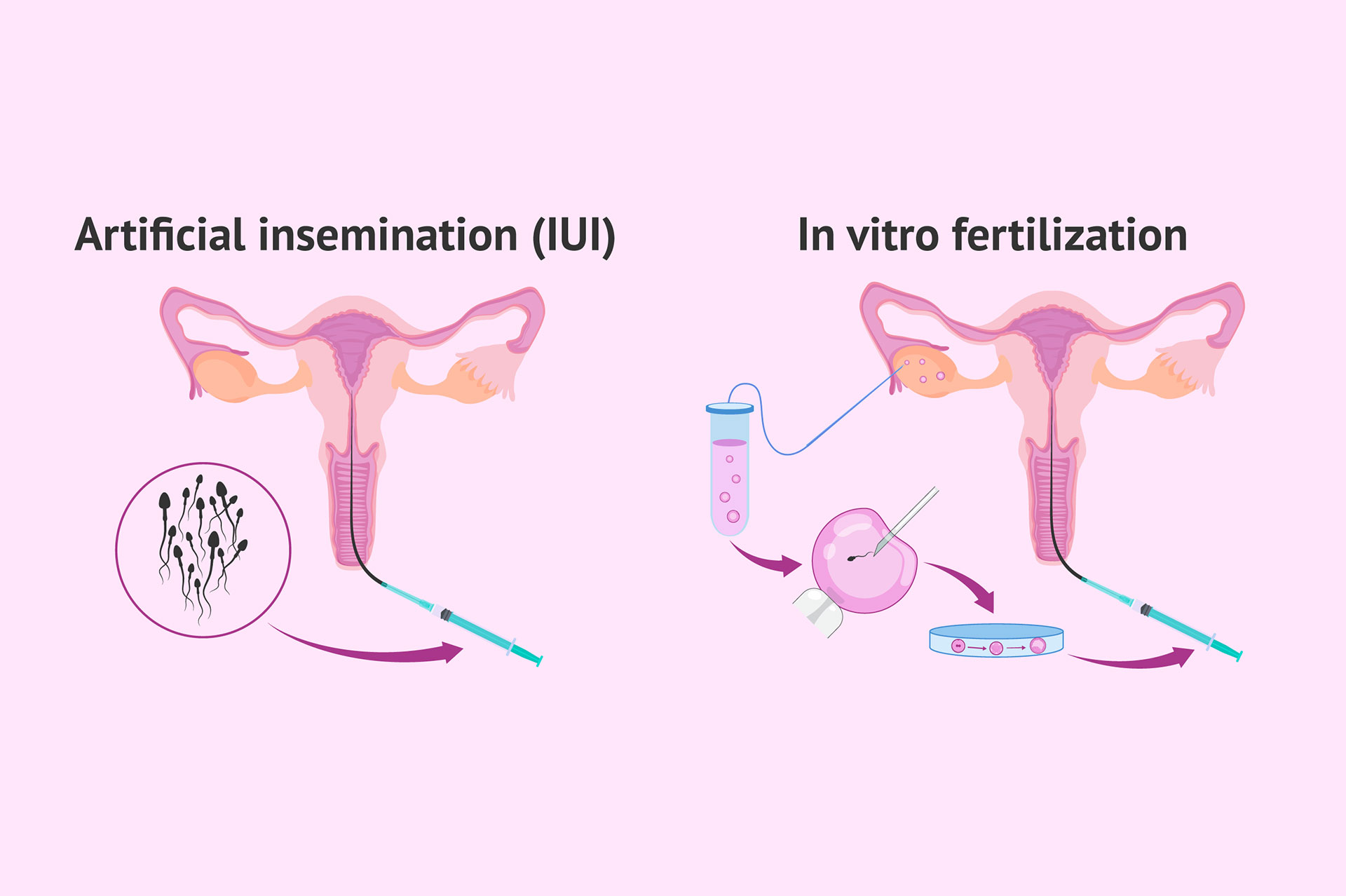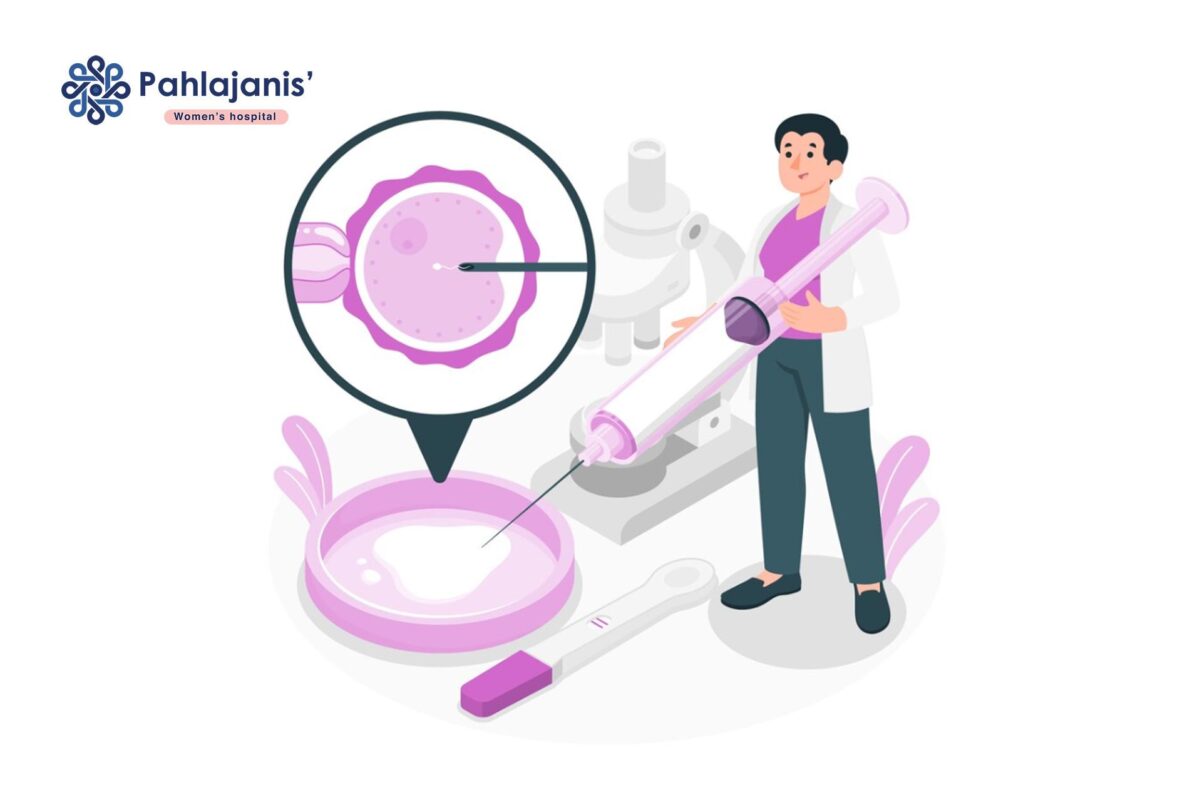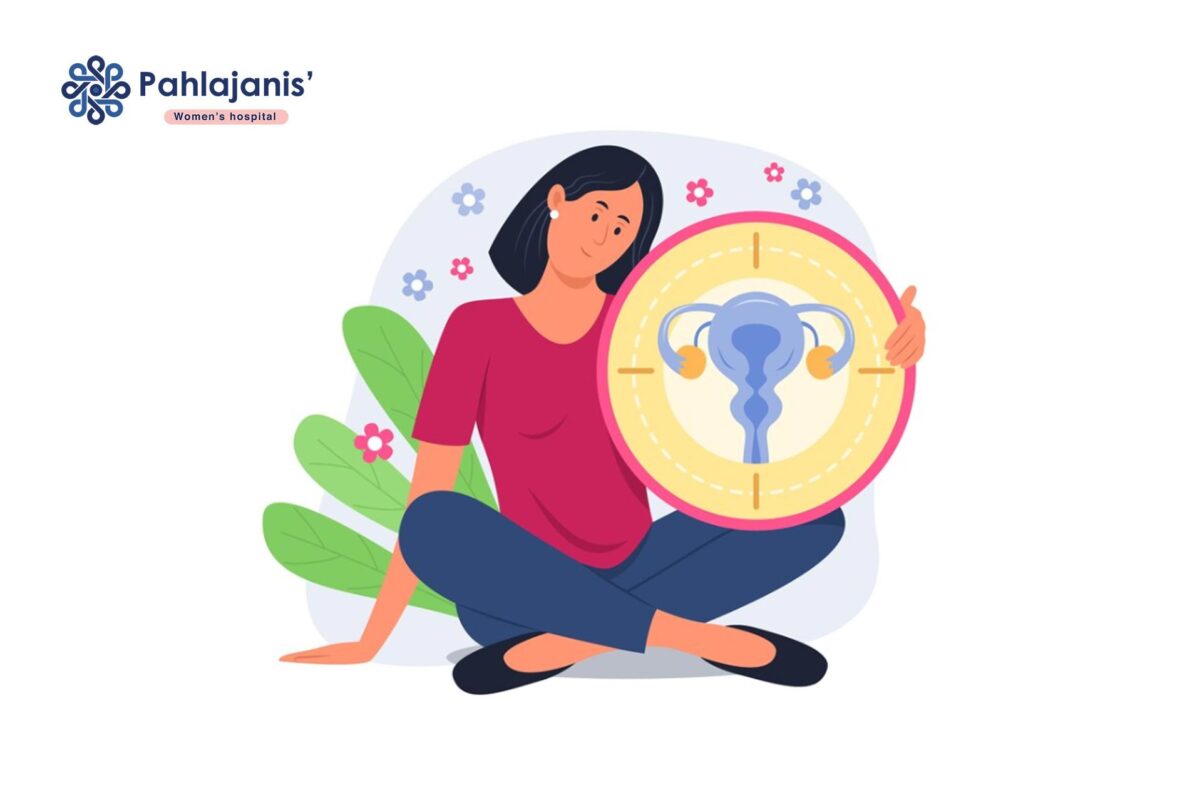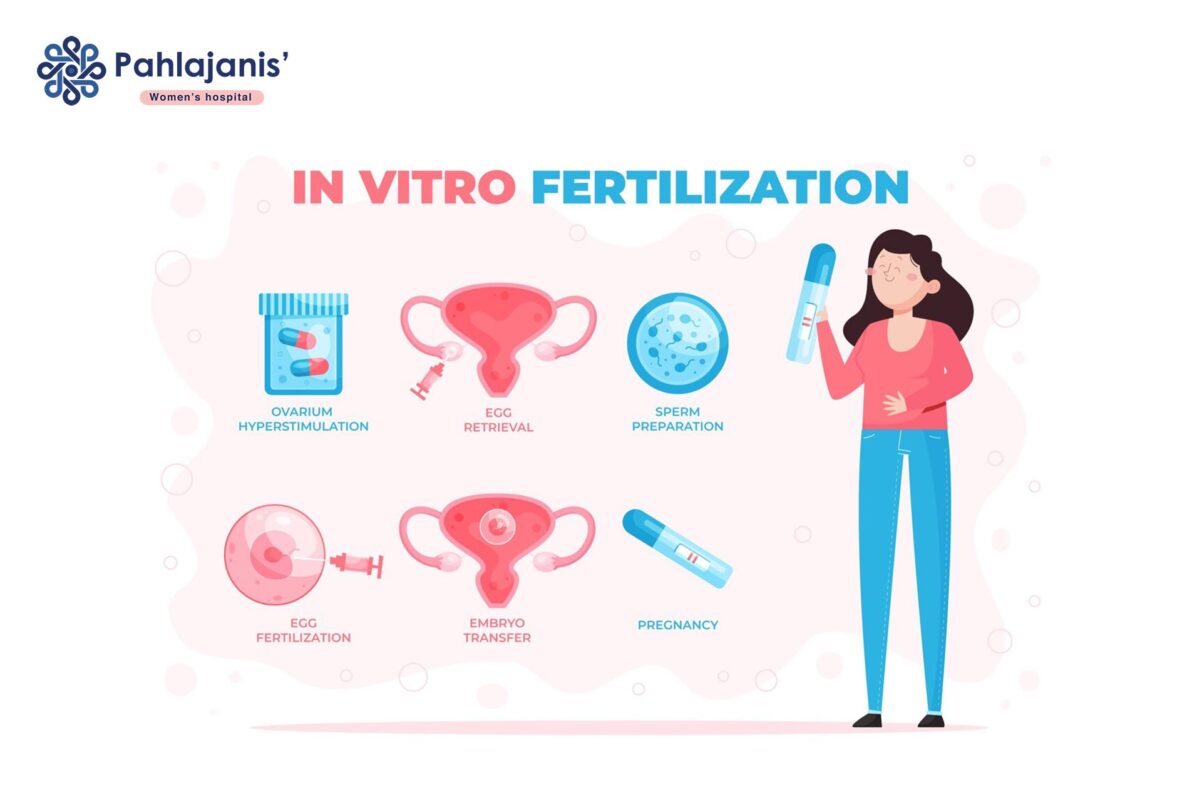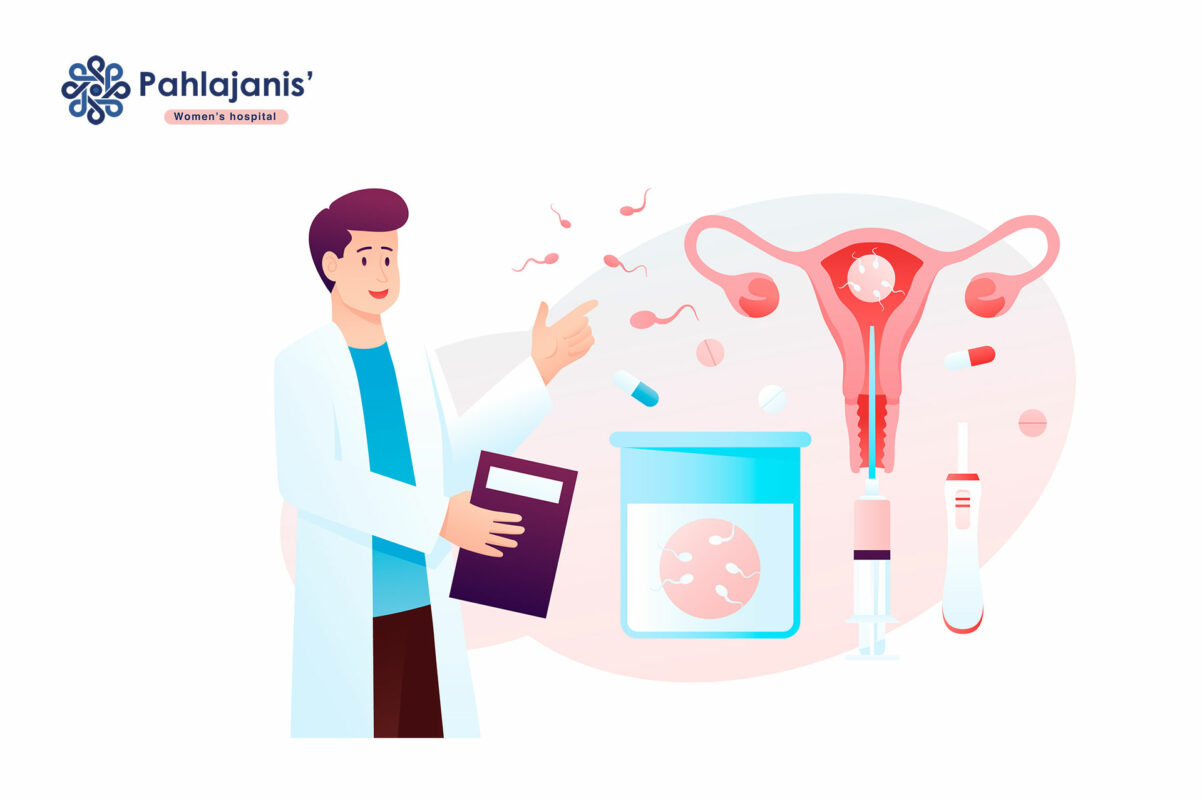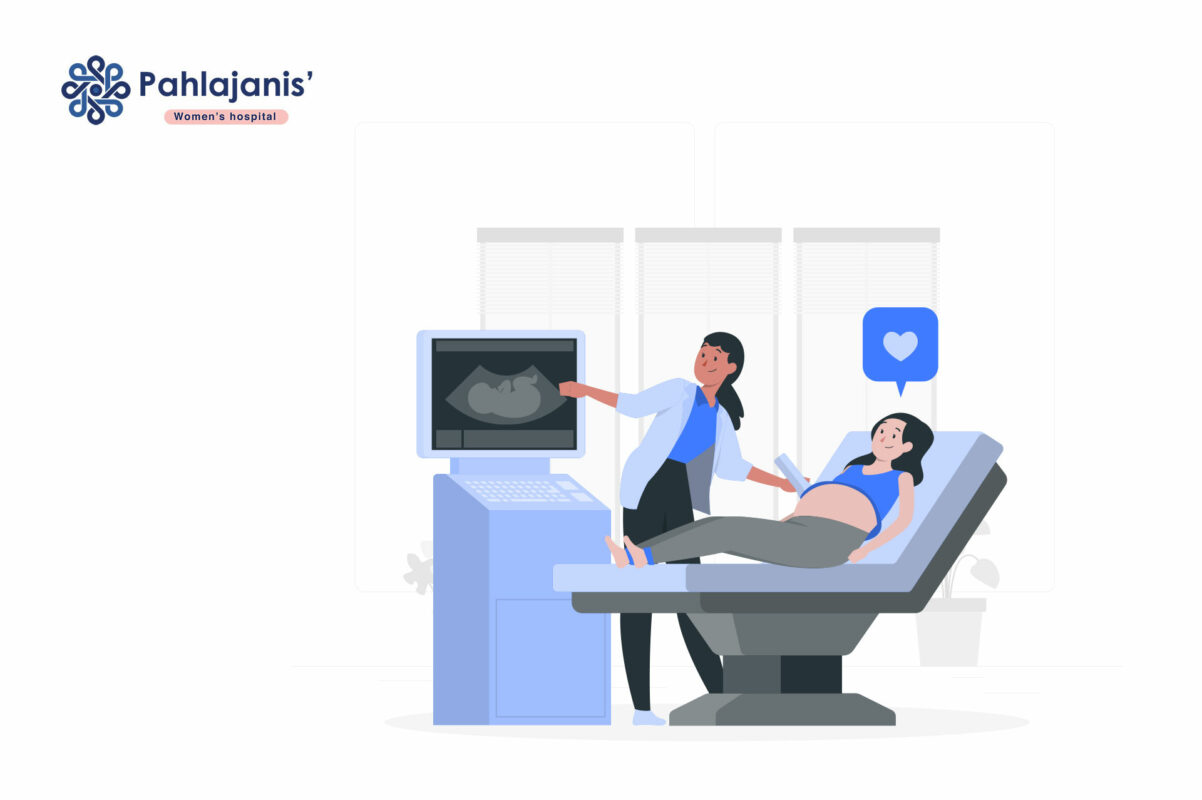Difference Between IVF And Artificial Insemination
Although experiencing infertility can be a difficult and painful journey, there are numerous fertility treatments available to assist couples in conceiving and getting pregnant. The two most popular treatments are artificial insemination and in vitro fertilization (IVF). While each of these treatment has the potential to be successful for some types of infertility, their methods and success rates differ.
WHAT IS IN VITRO FERTILIZATION (IVF)?
IVF is a fertility treatment in which an egg is fertilized outside of the body in a laboratory setting. The procedure begins with a woman being subjected to hormonal stimulation in order to produce multiple eggs. These eggs are then extracted with a needle from the ovaries and mixed with sperm in a laboratory dish.
The resulting embryos are monitored after fertilization and are usually transferred to the woman’s uterus within a few days. The number of transferred embryos can vary depending on the woman’s age, fertility history, and other factors.
WHAT IS ARTIFICIAL INSEMINATION?
Artificial insemination is a fertility treatment in which sperm is injected directly into a woman’s reproductive system in order to increase the chances of fertilization. Artificial insemination is classified into two types:
Intrauterine insemination (IUI): A thin catheter is used to insert sperm directly into the woman’s uterus during IUI. This is usually timed to coincide with ovulation in order to increase the chances of fertilization.
Intracervical insemination (ICI): ICI involves inserting sperm into the cervix with a small syringe. This can be carried out at a hospital or at home.
Difference between IVF and Artificial Insemination
While both IVF and artificial insemination can help couples conceive, there are several key differences between the two treatments.
Procedure : IVF is a more involved procedure that requires hormonal stimulation, egg retrieval, and fertilization in a laboratory setting. Artificial insemination is a simpler procedure that involves placing sperm directly into the reproductive system.
Success rates : IVF typically has higher success rates than artificial insemination. The success rate for IVF is around 40% for women under 35, while the success rate for IUI is around 10-20%.
Cost : IVF is typically more expensive than artificial insemination, due to the more involved procedure and use of laboratory equipment. The cost of IVF can vary widely depending on factors such as location and insurance coverage.
Indications : IVF is often recommended for couples who have been trying to conceive for a longer period of time, or who have underlying fertility issues such as blocked fallopian tubes or low sperm count. Artificial insemination may be recommended for couples with less severe fertility issues, or as a first-line treatment for certain types of infertility.
Multiple pregnancies: IVF is associated with a higher risk of multiple pregnancies, which can increase the risk of complications such as preterm labor and low birth weight. Artificial insemination is typically associated with a lower risk of multiple pregnancies.
Which Treatment is Right for You?
The decision of whether to pursue IVF or artificial insemination will depend on several factors, including the couple’s age, fertility history, and underlying fertility issues. Your fertility specialist can help you determine which treatment is right for you based on your individual circumstances.
In general, IVF may be a better option for couples with more severe fertility issues or a longer period of infertility, while artificial insemination may be a good option for couples with less severe fertility issues or as a first-line treatment for certain types of infertility.
Which fertility treatment to choose between IVF and Artificial Insemination?
The choice between IVF (In Vitro Fertilization) and artificial insemination (AI) depends on several factors, including the cause of infertility, age of the woman, and other medical factors. Some general but important information to consider:
Artificial insemination is a fertility treatment in which sperm is directly inserted into the uterus of the woman, bypassing the cervix, to increase the chances of fertilization. There are two types of artificial insemination: intrauterine insemination (IUI) and intracervical insemination (ICI).
IVF, on the other hand, involves the fertilization of eggs outside of the body in a laboratory, after which the resulting embryo is transferred to the uterus. IVF can be used for various fertility issues, including blocked fallopian tubes, male factor infertility, unexplained infertility, and advanced maternal age.
The decision of which treatment to choose depends on several factors, including:
The cause of infertility: Depending on the cause of infertility, one treatment may be more effective than the other. For example, if there is a severe male factor infertility, IVF may be the best option.
Age : Age is an important factor in determining the success rates of both treatments. IVF is generally more successful in women over the age of 35.
Financial considerations : IVF is generally more expensive than artificial insemination.
Personal preferences : Some couples may prefer artificial insemination because it is less invasive than IVF.
It’s important to consult with a fertility specialist who can evaluate your individual situation and recommend the best course of treatment for you.
Infertility is a difficult journey, but there are several fertility treatments available to assist couples in becoming pregnant. IVF and artificial insemination are two of the most common treatments, each with their own set of benefits and drawbacks. It is critical to consult with a fertility specialist to determine which treatment is best for you.
For the best fertility treatment and consultation regarding the same from our fertility expert, and to start the new path towards the happiness of a lifetime that lies in a child, visit Pahlajanis’ Women’s Hospital & IVF Centre.

